|
At long last, the science fiction series is on its way. Starting 2/February/2024, I will post chapters from The Spider, The Witch, And The Spaceship. Then in 2025 I will post 42 short stories per year for 30 years. This will be the most epic series of all spacetime! The adventure begins now.
0 Comments
Another book published! My mother’s father was born in North Kingstown, Rhode Island in 1914 and lived in the same house his entire life. In 2017, he had a minor stroke and it was then decided that I would move in. The plan was that I would handle the riskier tasks, such as walking to the mailbox or bringing the laundry to the basement. I would also drive him places. Thus began my comical misadventures of living with a man who had lived in the same town for more than a century and yet didn’t know what smores were, who had a specific place for everything but didn’t always remember where it was, who misheard absolutely everything, and who rarely threw anything away. I’d like to say I learned a lot, but I probably didn’t.
Another book published! There are many who have had an encounter with the creator, but I’ve never heard of any like mine. Since no one else tackles the topics I do, I thought that my witness might help others who continue to struggle. How do we know the will of God? How do we build our faith? How do we stop sinning? What do we have to do to get our prayers answered? What are the rules? Never mind that. Anything one does to support one’s spiritual growth can only end in sin and self-defeat, like a snake eating its own tail. God is smart enough to solve any problem resulting from our failures, so we don’t have to worry about following rules of any kind. I had to learn this the hard way. Only now do I understand that one has to lose his life to find it and that it is no longer I who live, but Christ who lives through me. Like a computer program gone bad, we must have ourselves “uninstalled.” This is my story.
“For God so loved the world that he gave his only Son, so that everyone who believes in him will not perish but have eternal life.” – John 3:16
As hard as it is to believe, even someone as amazing and talented as I can be distracted by ego. I may have greater humility, but I also have more things to be proud of.
Truth is more important than liberty. I believe in both, and in the supermajority of real-world scenarios they will always be on the same side. However, if there ever were a conflict between the two, truth is supreme.
Thinking can get you into trouble. Not thinking can also get you into trouble.
Knowing when to think and when not to think requires thinking. My boss doesn’t pay me enough to think. Neither does he pay me enough not to think. For some people, thinking is as natural as breathing – and just as difficult to stop. There are three kinds of libertarians: moralist, pragmatic, and de facto.
Moralist libertarians always believe in liberty because infringing on the people’s rights is morally wrong. Pragmatic libertarians might be unswayed by the moral argument, but support liberty because centralized government programs are ineffective or counterproductive. De facto libertarians might be unswayed by the pragmatic argument, but support liberty today because the current set of government officials cannot be trusted. Bad people will always find a way to pervert the best of systems. Good people will always find a way to redeem the worst of systems. The difference between good people and bad people is nothing other than behavior, and behavior can change in a moment.
Evildoers might not believe God is watching, ready to deliver justice, but what I can’t understand is why they never consider that aliens might be watching. Considering how close we are as a species to developing space travel, and our track record of abusing each other, I’d think that any aliens would be watching us very closely.
I trust the science. I do. It’s the scientists I don’t trust.
The real adventure is better than the film or novel and the real girl better than the dream one.
It is better to hear an ugly truth than a pretty lie. It is better still to hear a pretty truth.
Who is the greater threat? The one experiencing anxiety and revenge ideation – who might, maybe, perhaps one day shoot up the school? Or the ones who have caused the anxiety by actually engaging in repeated verbal and physical abuse, slander, psychological manipulation, threats, and harassment?
Who is the greater threat? The politician who runs on a promise to remove the means of self-defense from those who might need it most on mere hearsay by the decision of a single government agent, with no oversight or way to appeal the decision until afterwards? Or the patriotic citizen at home who grumbles that someone ought to do “whatever it takes” to stop that politician from winning? Saying I can’t have an opinion on abortion because I’m not female is like saying I can’t have an opinion on the holocaust because I’m not a member of the Nazi party.
Without life, there is no liberty, no pursuit of happiness, no free speech, no right to bear arms, no right to vote, no free health care, no affordable housing, and nothing else. If the government provides anything at all whatsoever, it follows logically that it should first protect us from being killed. Since the role of government is to protect the weak and the innocent more than it is to protect the strong and the guilty, and since there exist no citizens more vulnerable or more innocent than those living in the womb, it follows logically that if the government protects the lives of anyone at all, it should first protect the unborn. It’s only fair.
Bipartisanship is not always good. Often, bipartisanship is when the donkeys eat all the grass, the elephants eat all the shrubs, and nothing is left behind for the sheep.
When different media outlets report different versions of the same story, who is to say which is the conspiracy theory and which is the coverup? Which is the dogma and which is the heresy? Who is mainstream and who is fringe?
Some claim that it is within the proper role of the courts to settle disputes between the legislative and executive branches, but then who is it that settles disputes between the courts and another branch? Who is it that defines the proper role of the court?
Some claim it is within the proper role of the courts to decide the meaning of the constitution even when it applies to restrictions on government power, but what then restricts a part of that same government (the courts) from deciding the constitution to mean whatever it pleases, granting itself unlimited power? Some claim that the courts interpret the laws for us because sometimes we cannot agree on the meaning of the laws, but if we cannot agree on the meaning of the law, how can we then agree on the meaning of the rulings of the court? If you want something done right, you should do it yourself. If you still want others to do it, it is your responsibility to make sure they understand how you want it done, not theirs. This is no less true just because you call yourself a government. If you want people to follow the laws, they must be both comprehendible and not numbered so many that they cannot be remembered. If you expect people to make use of a lawyer, it is your responsibility to hire one for them at your expense. If you want people to pay their taxes, it is your responsibility to do the paperwork.
In February 2023, I visited the Marshall Hampton Reserve in Florida. I circled the pond there first. I saw many birds and a few alligators, including these unformed gators bubbling from the ground, proving my theory of reptilian abiogenesis! There were also some oddly shaped plants and a very indecisive fish. Eventually, I picked up the Panther Point Trail heading south. To my surprise, it cut across a cattle pasture. Cows as big as mountains glared at me as I warily passed between them. I should have taken a picture, but I didn’t dare stop. Beyond this, the trail was much as I experienced it when I explored the southern half. I again saw raccoons. I again saw alligators. There was water on either side with artistically-strewn vegetation. I eventually made it to the bridge where I had turned around two weeks prior. There were ospreys and pelicans, but the crows had clearly taken over the conference. How can anyone talk about absolutely nothing for so long? Blah blah blah blah blah! I enjoyed the sun and breeze for ten minutes before turning back. Suddenly, I heard a commotion in the brush. My heart jumped in and out of my chest. My first thought was humans, and I got into a defensive stance. Then I saw it through the gaps of greenery. It was huge! This was no human! This was no bobcat! This was no pig! My brain raced to make sense of the incomplete data and all it could come up with was “short-faced bear,” but I knew they had died out in the Pleistocene – or had they?
Finally, I realized this was an escaped cow that was now meandering through the swamp. How had it got out? Did it not want to be in my next Happy Meal? I held perfectly still and it passed by. After my encounter with the swamp cow, I was quite shaken and I still had to pass the main herd on the way back to the parking lot. I found that they had moved closer to the trail. They lined either side of it, all looking at me silently. It was just like the junior high lunchroom. Any one of them could have brushed me aside like a fly, but I persevered and made it through. The walk back was mostly uneventful, but it was hotter than when I left and I was in no condition to explore the other loop. It didn’t matter. I had seen the swamp cow and lived to tell about it. This was something I was going to tell my grandchildren. This was how I was going to pick up women. I was going to build a career on this. I might even sell shirts. “I survived swamp cow” they would say. I ate some trail mix and drove home. There is no amount of punishment possible to deter someone from killing or injuring another when they perceive it as self-defense. When under the threat of bodily harm, what the law or the community will think of one’s actions later is the last thing on one’s mind. More punishment won’t work.
I recently read The Grace Message by Andrew Farley (2022). It goes farther and makes clearer what I already knew about the core of Christianity, yet most Christians don’t quite get it and most preachers muddy it up with a bunch of rules. Jesus ALONE saves. Our behavior plays no part. Therefore, there is no point in following a set of rules. We are dead to the law.
The book is broken into fifty-two short chapters each beginning with a story of someone with a question or objection to Farley’s message. This makes it very relatable and less abstract. Many Christians are afraid of letting go of the law, less because they are afraid they will fall into sin without it, and more because they think other Christians will. They themselves desire strongly not to do evil, yet assume that preaching rules of right living is the only thing keeping other people from spiraling into evil. Farley responds with what is almost obvious in hindsight: That sinners are quite capable of sinning with or without rules, that believers are new creations with new hearts that make them want to stop sinning, and that when a believer does sin, they soon find they regret it and cannot continue in sin. The purpose of the Law of Moses was never to be followed and achieve salvation; its purpose was only to arouse and thereby expose sin. The law is not for believers, but for unbelievers, to show them their need for a savior. The law was only a shadow of things to come (Colossians 2:17, Hebrews 10:1). Where Farley goes further is by constantly hammering the points that the work of Jesus was finished once and for all on the cross, where we died with him. We don’t have to keep asking for forgiveness (see Hebrews chapter 9). Our next sin is already forgiven. Jesus foreknew your every sin and died for you anyways, never asking for any effort on your part. We don’t have to keep “dying to self” or be disciplined or sanctified over a lifetime. It’s done. There are only two levels of righteousness: believers and unbelievers. Jesus removed our sins from us, so that we are every bit as righteous as he is. This is both imparted and imputed. The sins we commit are not part of our identities. Thus, your ambitions are not selfish. Your dreams are God-given. The Holy Spirit works through us by giving us new desires. While the Holy Spirit corrects us when we make a mistake, only Satan condemns. God does not want you out of your comfort zone; he is the one who sent the comforter! This is in part how he guides us. So many churches preach exceptions to rule-free living. Some teach that one must follow the ten commandments, others teach that one must follow the ten commandments plus tithing, and others teach that one must follow only nine of the commandments, the sabbath no longer applying to today. The problem is that nobody follows the whole law, with its rules about inheritance, diet, clothing, lending, and festivals. It’s impossible! The Temple in Jerusalem is no longer operational to take sacrifices! Besides, the law was never given to the gentiles, tithing pertained mostly to oil, grain, and meat, and today’s “priesthood” is allowed to own property and run side hustles so tithing is less necessary. Farley hypothesizes that the real reason Jesus spoke of cutting off body parts that cause us to sin, of mere thoughts being as bad as murder and adultery, and of breaking one part of the law being as bad as breaking the whole, was to make it overwhelmingly clear that there was no point in trying to live by our own efforts. Many churches take these teachings of Jesus as actual rules to be followed, but then water them down by saying the amputation was metaphorical and making a distinction between willful and unwilful sins. They justify themselves by reinterpreting the rules rather than simply admitting it can never be done without divine intervention. Churches also play word games to hide what Jesus has actually done for us. They say we have to appropriate the spirit or that we have positional righteousness, but not experiential righteousness. They say that we are saved once and for all and surely going to Heaven, yet we can still lose fellowship with Jesus or find our prayers unheard. None of this is true because Jesus now lives in us and gives us his spirit. So far, this is powerful stuff – and all true! Later in the book, Farley tackles some verses that do seen genuinely confusing. He suggests that First John is writing to both believers and unbelievers. He suggests that the warning to “examine ourselves” is about gluttony in Corinth. He suggests that the two judgements of the dead might be the same one from the same seat. He suggests that we might not have different rewards in Heaven. Finally, he suggests that “pick up our cross daily” might not be in the original Gospel, since the earliest manuscripts of Luke lack the word “daily,” as do all manuscripts of Matthew and Mark. It is at this point that I have no way of evaluating the soundness of his ideas except to say that they go against what I was always taught. Then he goes on to get into stupid arguments of semantics. He says the “flesh” is not the “self,” and that it is the flesh that makes us sin, not our selves, which have the righteousness of Christ and the identity of children of God. He says the first step to stop temptation is to tell yourself that “you” don’t need it, that it isn’t “your” thought, and that temptation isn’t “from” you, though it might “sound like” or “feel like” you. This is very confusing. Whether we call the part of us from which sin originates the self or the flesh is irrelevant. Will not a rose by any other name smell as sweet? It is certainly part of us in the usual sense, so it is not incorrect to say it is the self. Furthermore, temptations absolutely are “our” thoughts if we are the ones having them! What does it even mean to say a thought we are having isn’t a thought we are having? Who is having it if not us? And how do we know about it without also thinking about it? They are our thoughts by definition. As for where temptation comes “from,” it is hard to say, but we are unaware of it until it emerges in ourselves. When another person whispers in our ear (or uses book or television), we know where the thought came “from,” but when a thought occurs to us out of the blue, doesn’t it make sense to say it came from us BY DEFINITION? It has nothing to do with “feels like” or “sounds like” and everything to do with semantics. The bottom line is it makes no difference from where temptation comes. Resisting it is the same either way. Why is it that wearing the image on your shirt of a violent communist revolutionary like Che Guevara is considered first-amendment-protected speech, but wearing nothing but your own body – made in the image of God himself – is considered so offensive it must be made illegal?
In February, I walked the Panther Point Trail around Lake Hancock in Florida. Starting on the southern end, it follows a raised road bed overlooking the lake on one side and a series of pretty ponds on the other. There were many birds, butterflies, and alligators. In the distance, one could see the artificial mountains left over from the phosphate mines of old. Much of Polk County is like this. There was a strong breeze and intermittent shade that day, so it started off very nice. Eventually, the trail entered a wooded area. Here were cypress swamps and green puddles forming a barrier with the lake. I noticed barbed wire running along both sides of the path, much overgrown with moss. Was it to keep me out or to keep something else in? Maybe it was the balloon I saw. Was this the one the military shot down? I saw osprey, raccoons, and more alligators. At one point in the trail, I had a wonderful experience. I smelled on the breeze the exact aroma of butter popcorn Jelly Belly jellybeans. It was sort of a butterscotch smell. What was it doing in the forest? I also saw a plant with scary-looking leaves and a bunch of prehistoric-looking fish sitting on the ground. Did they beach themselves or were they thrown out after someone was done fishing? Why waste so much good fish? There was also this wooden animal that did not seem at all bothered by the fish. I should be more like this animal. Beginning to get hot and thirsty after walking for six miles, I turned back. I saw some of the same alligators in the same places and smelled the same jellybeans in the same spot again. By the time I got back to the open area, the wind had died down somewhat, the sun was brighter and hotter, and I was wild with thirst. The gator-infested pond started to look very inviting.
Time dragged on and on and on. The path seemed to grow longer the more of it I traversed. It was endless. Perhaps it was like an escalator that only went north and I was going against the current. Vultures circled overhead. What seemed like several weeks later, I got back to the car and drank three water bottles in a row. I’d like to say I learned a lesson, but I probably haven’t. |
AuthorMy name is Dan. I am an author, artist, explorer, and contemplator of subjects large and small. Archives
February 2023
Categories
All
|
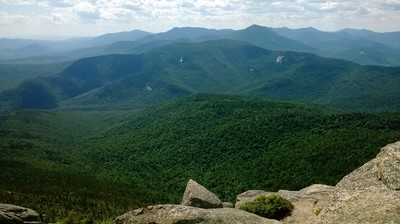
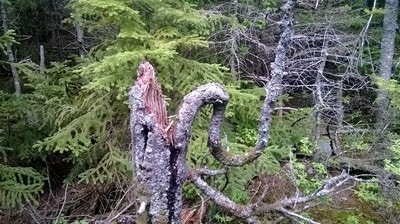
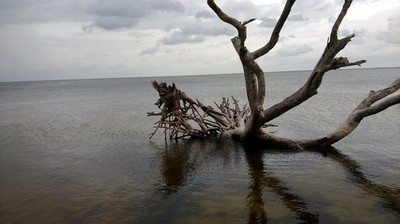

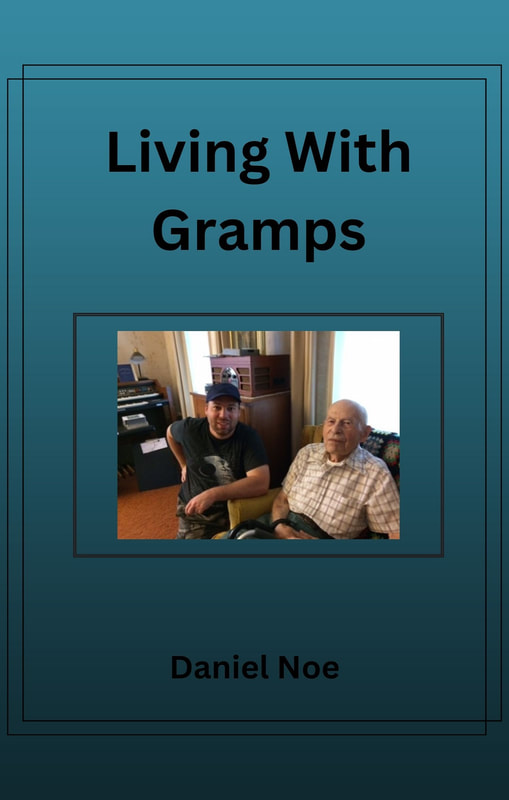
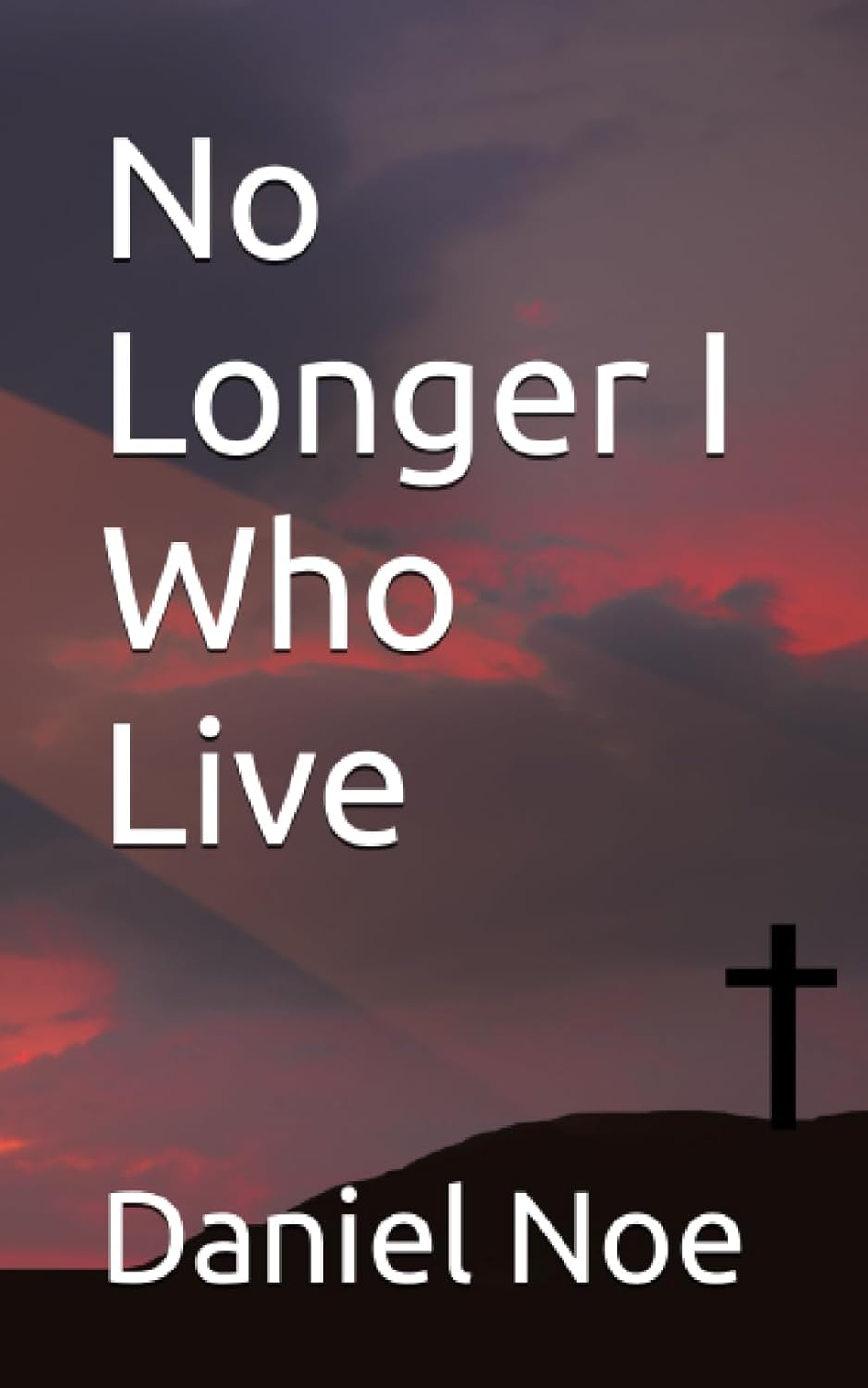
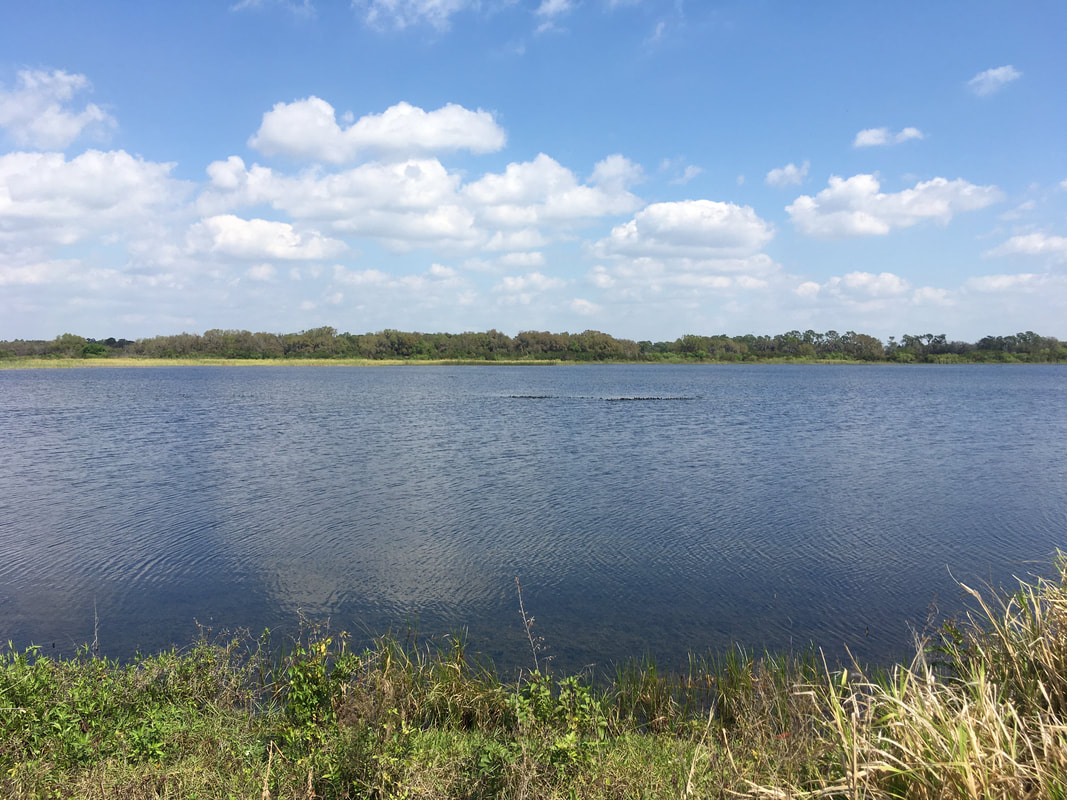
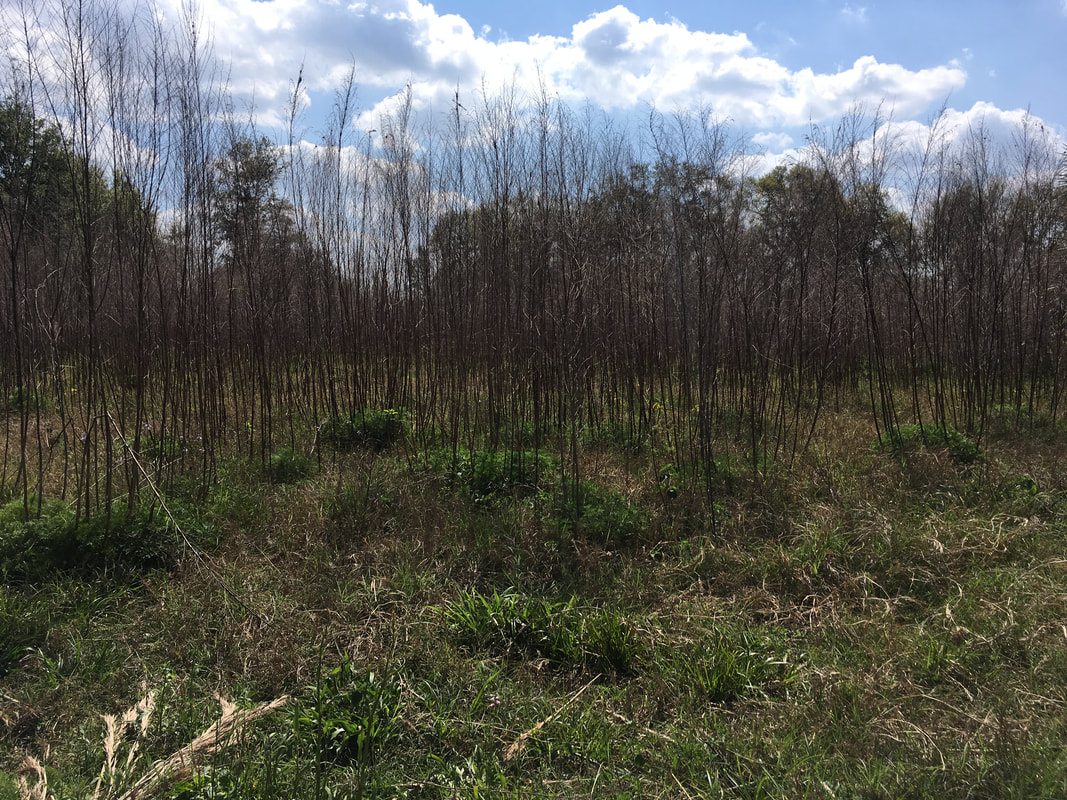
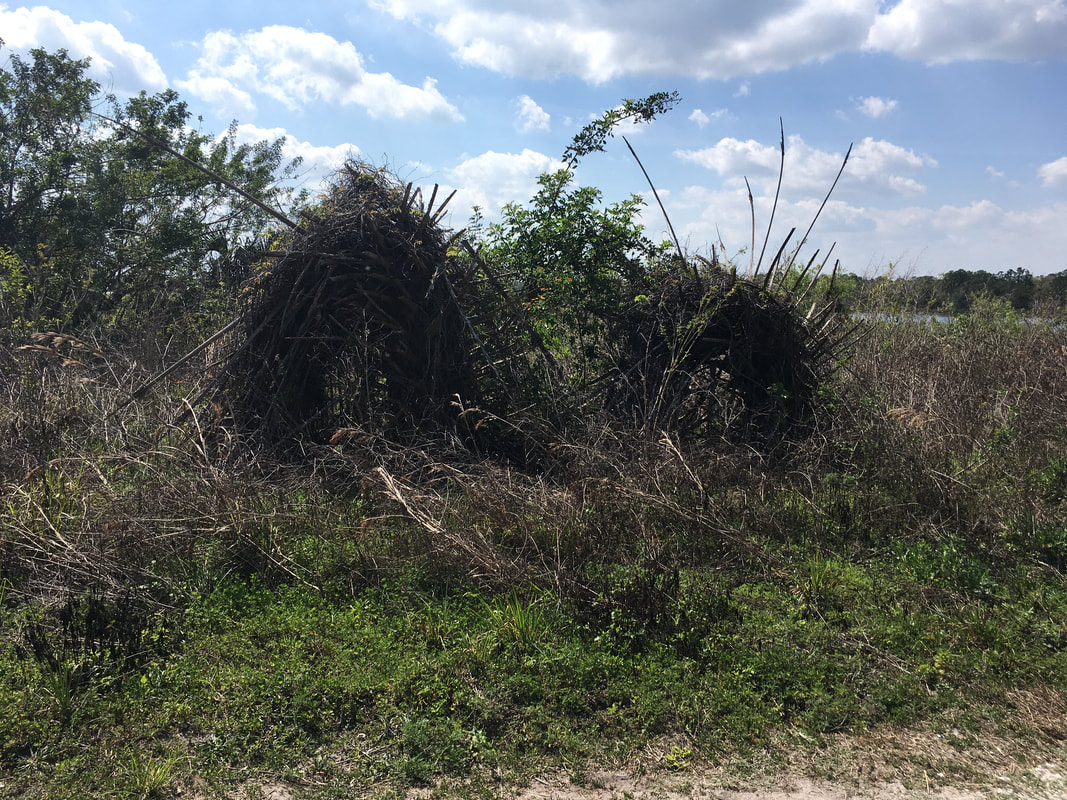
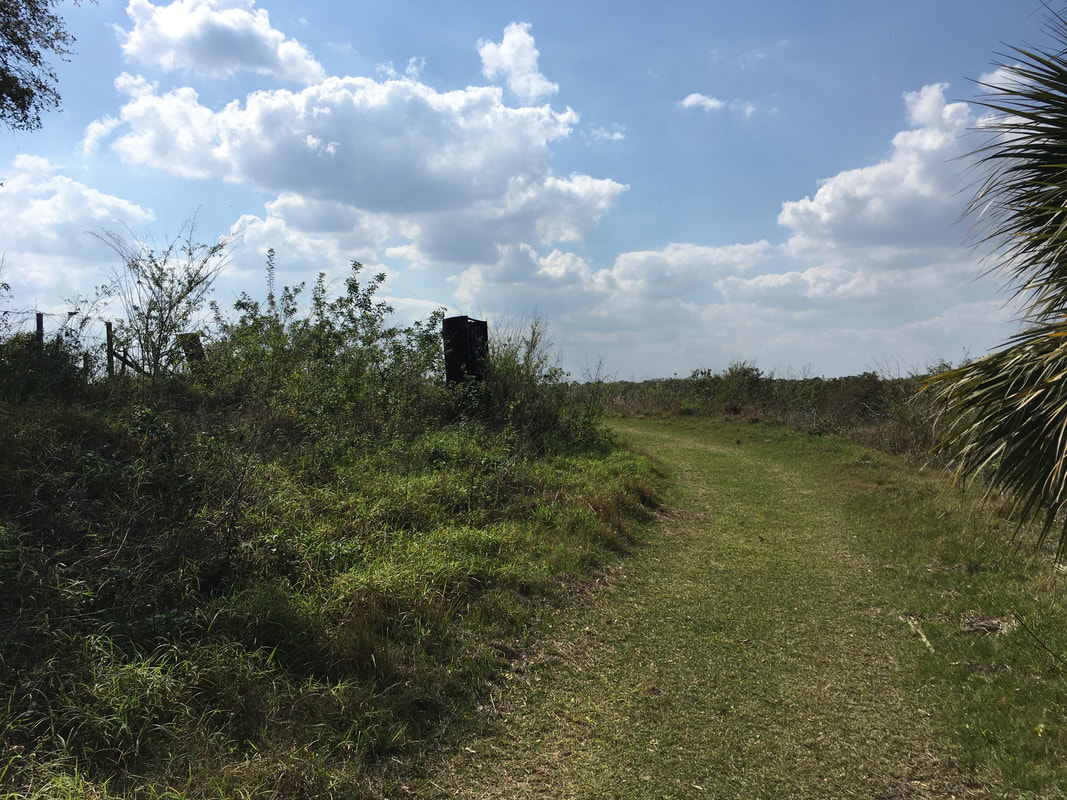
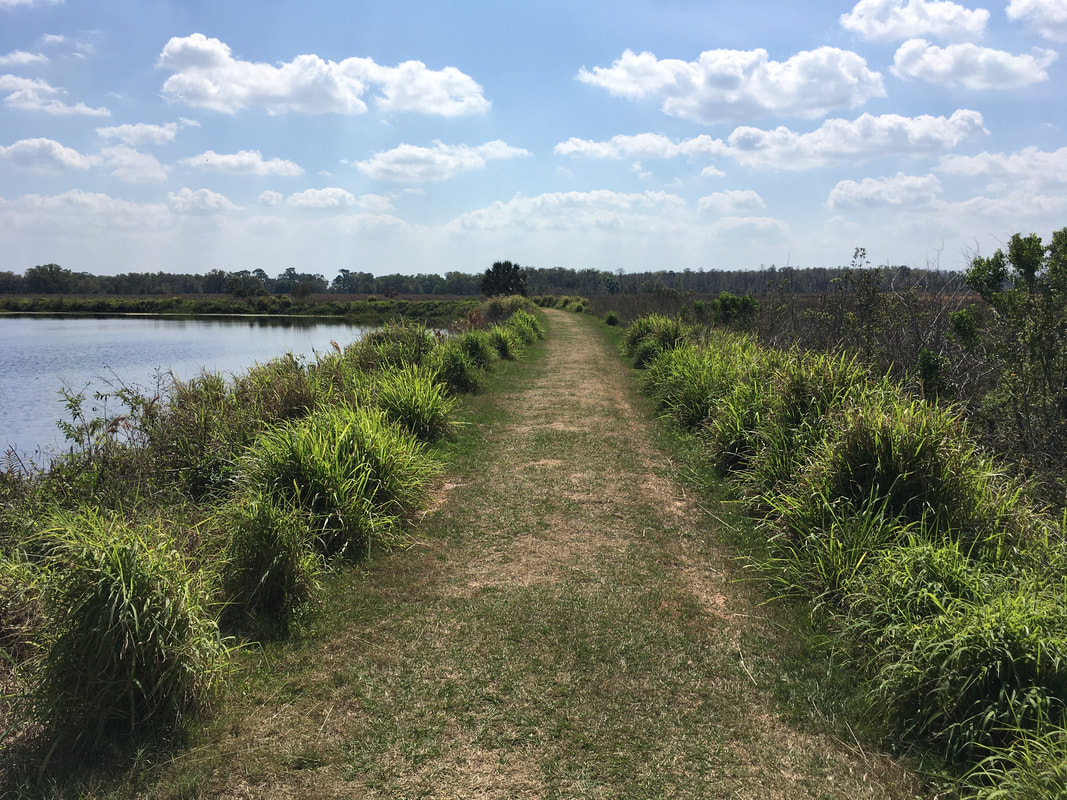
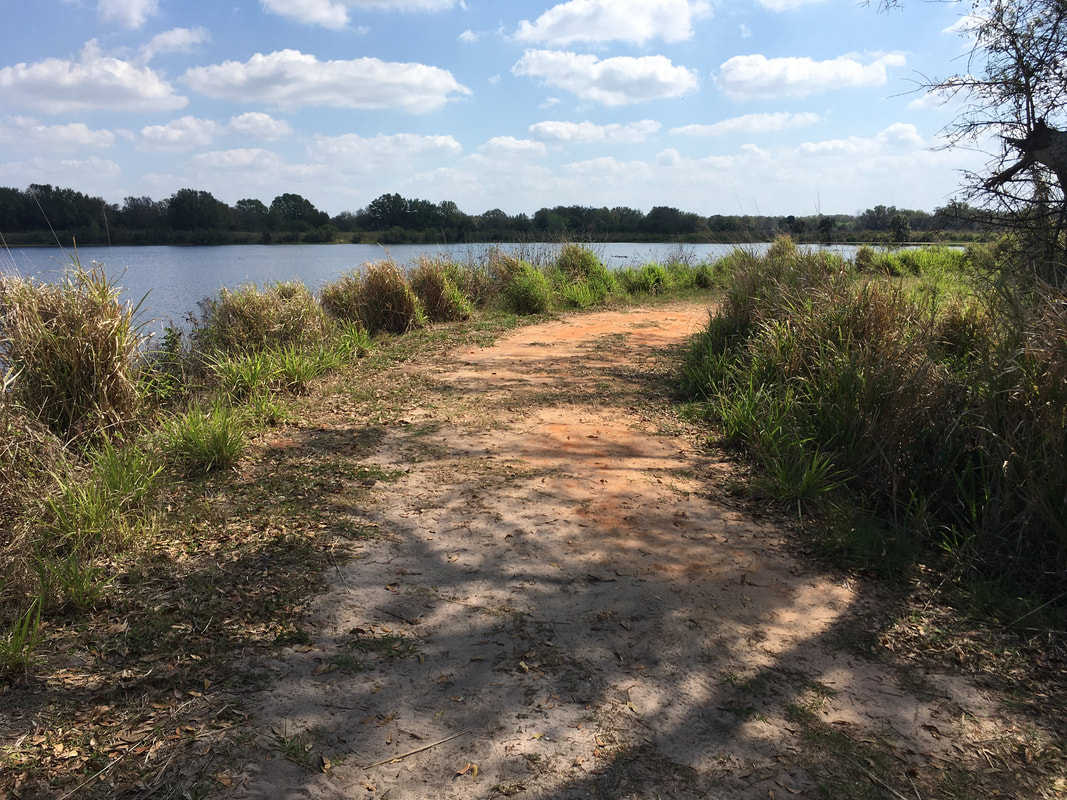
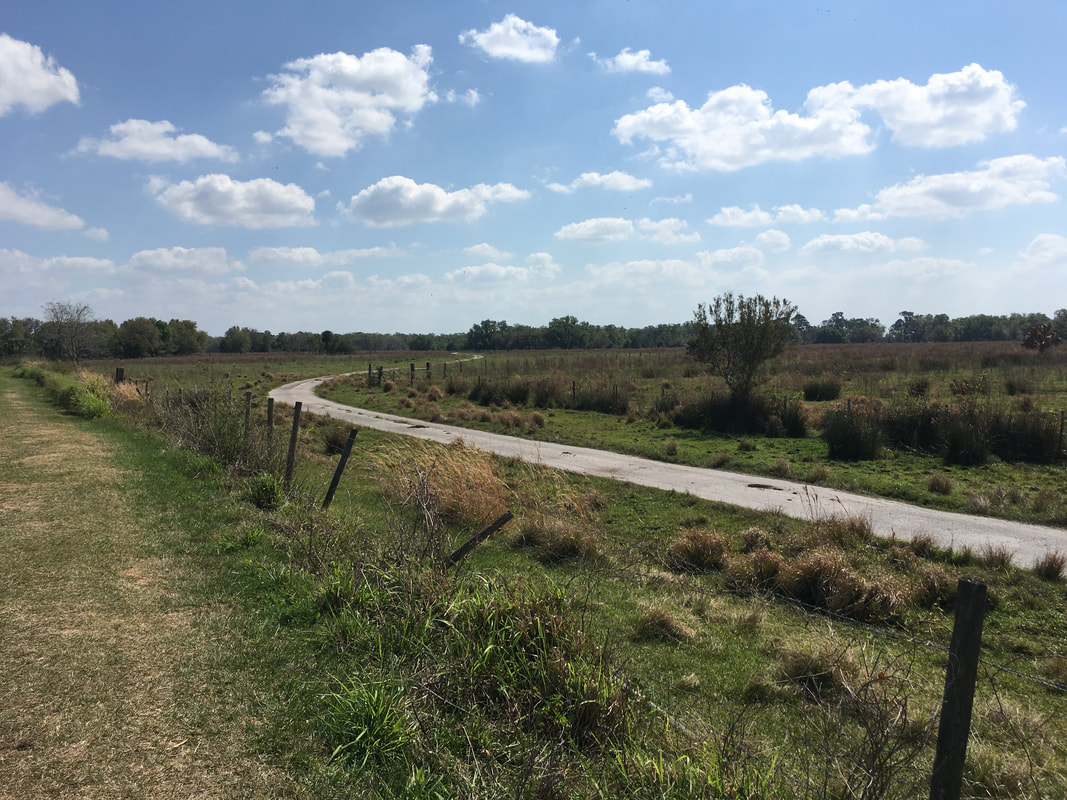
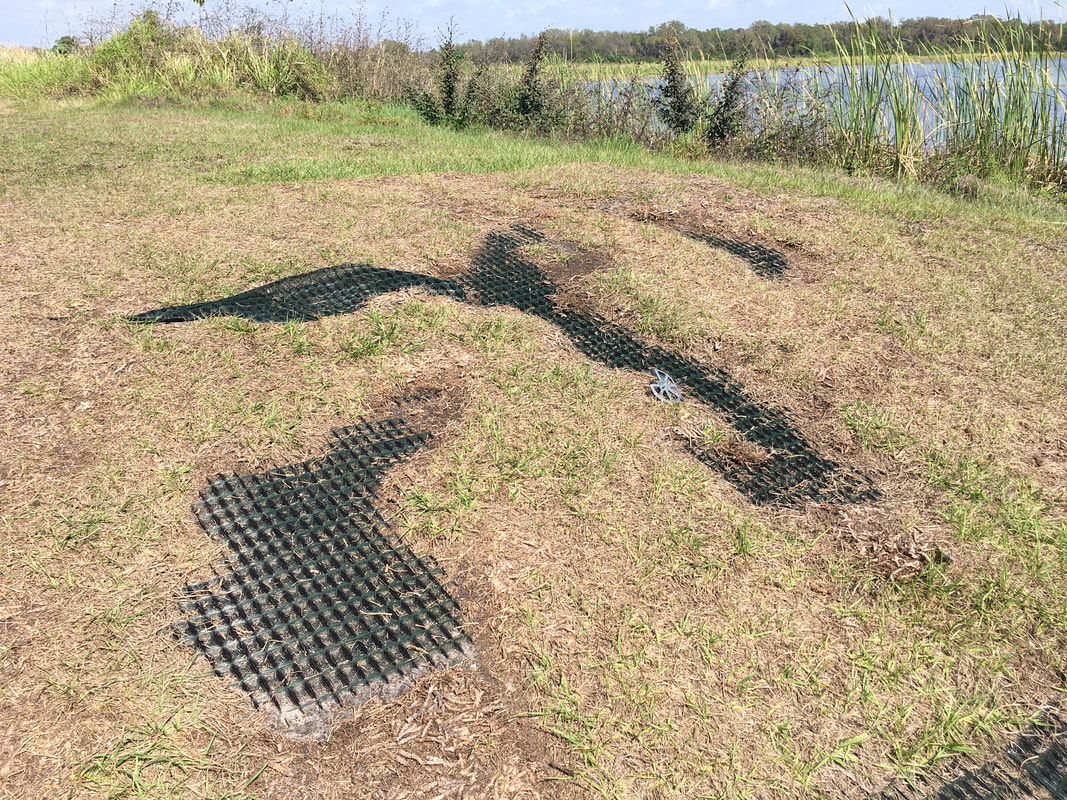
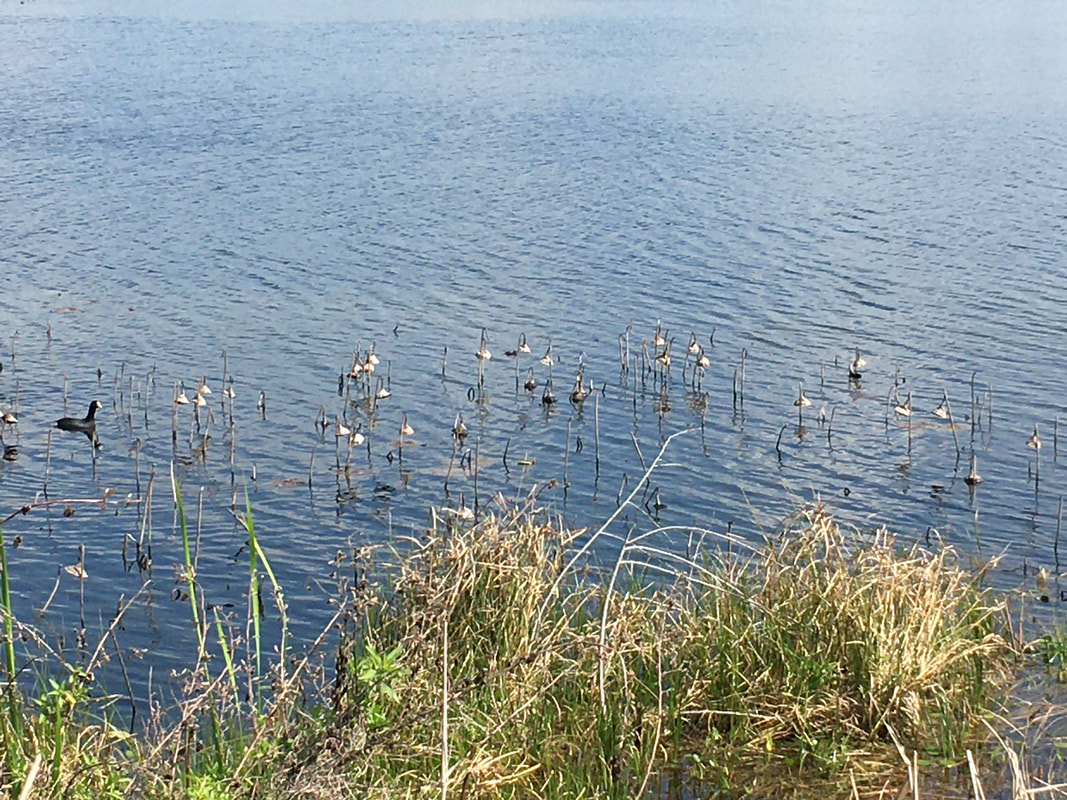
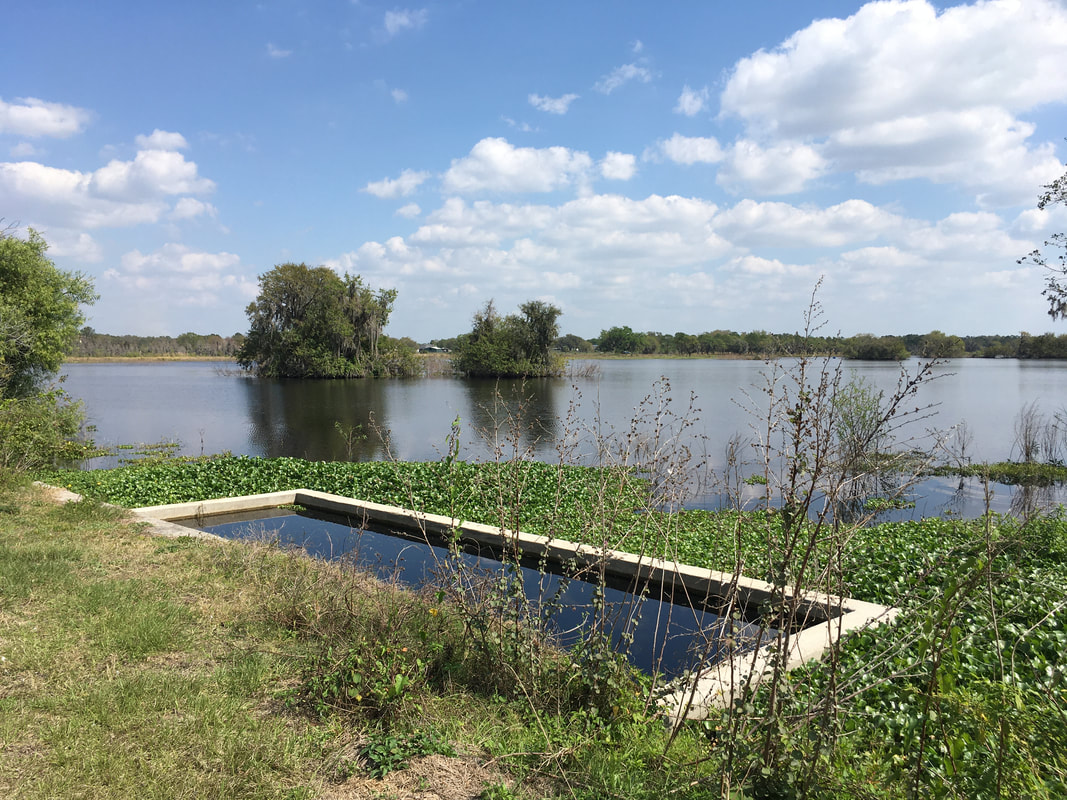
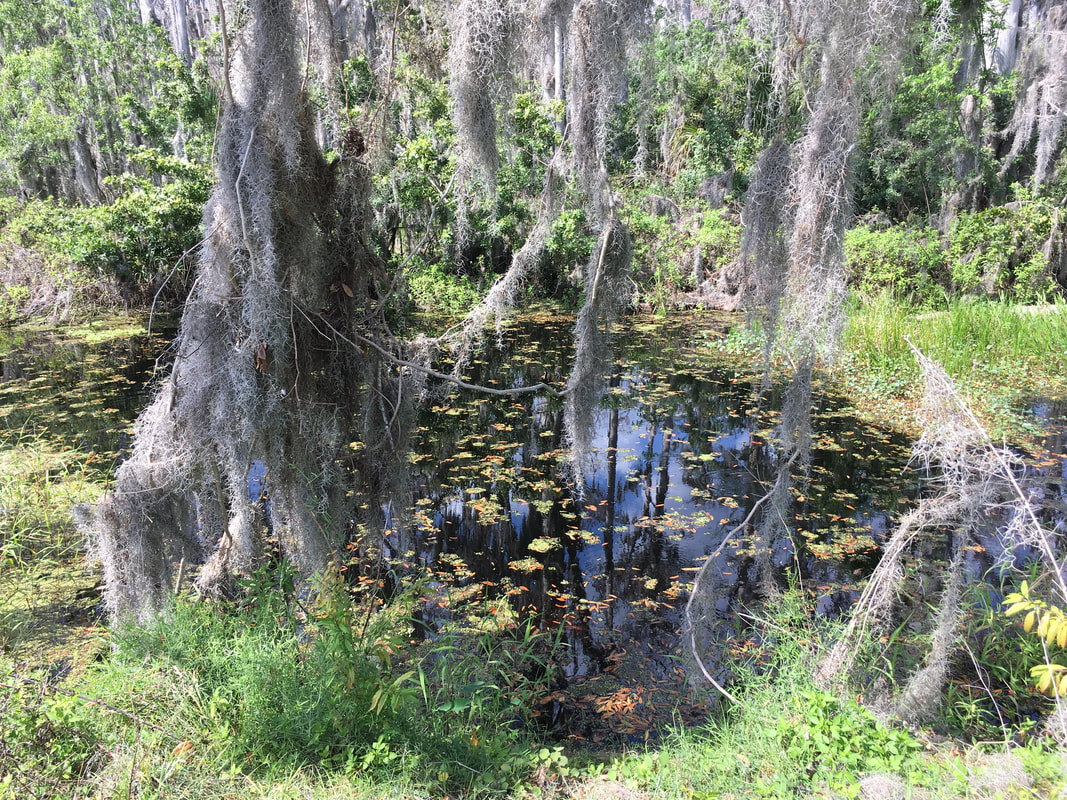
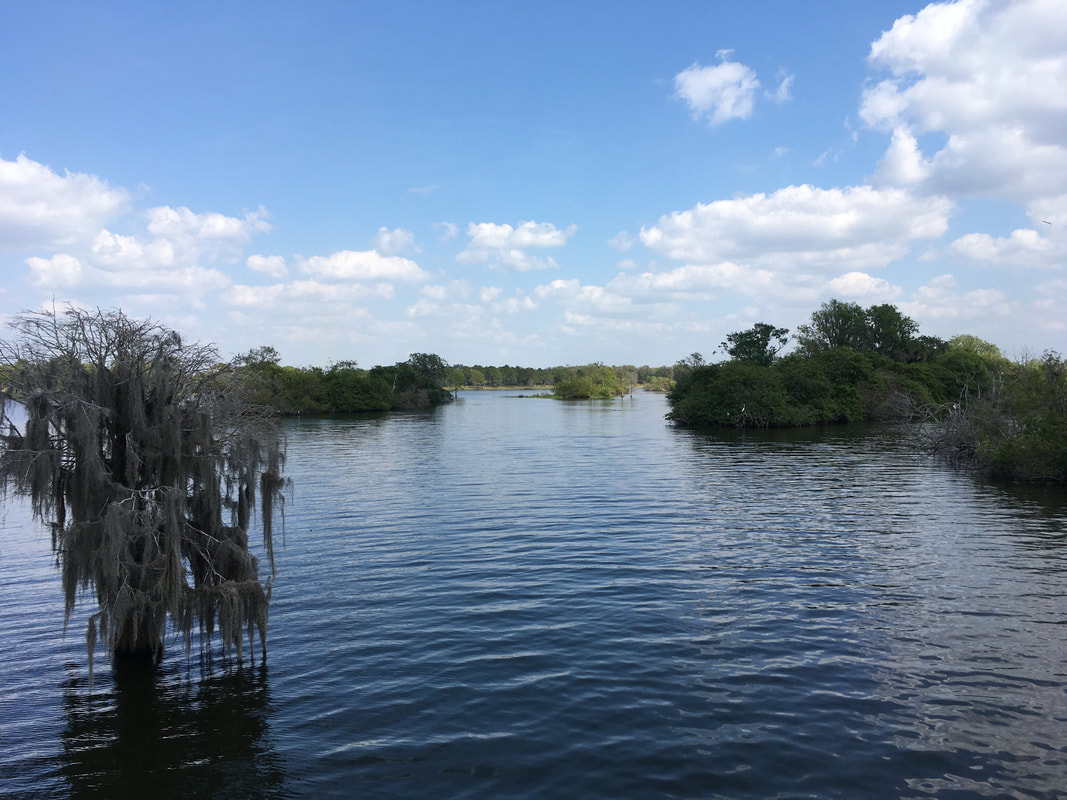
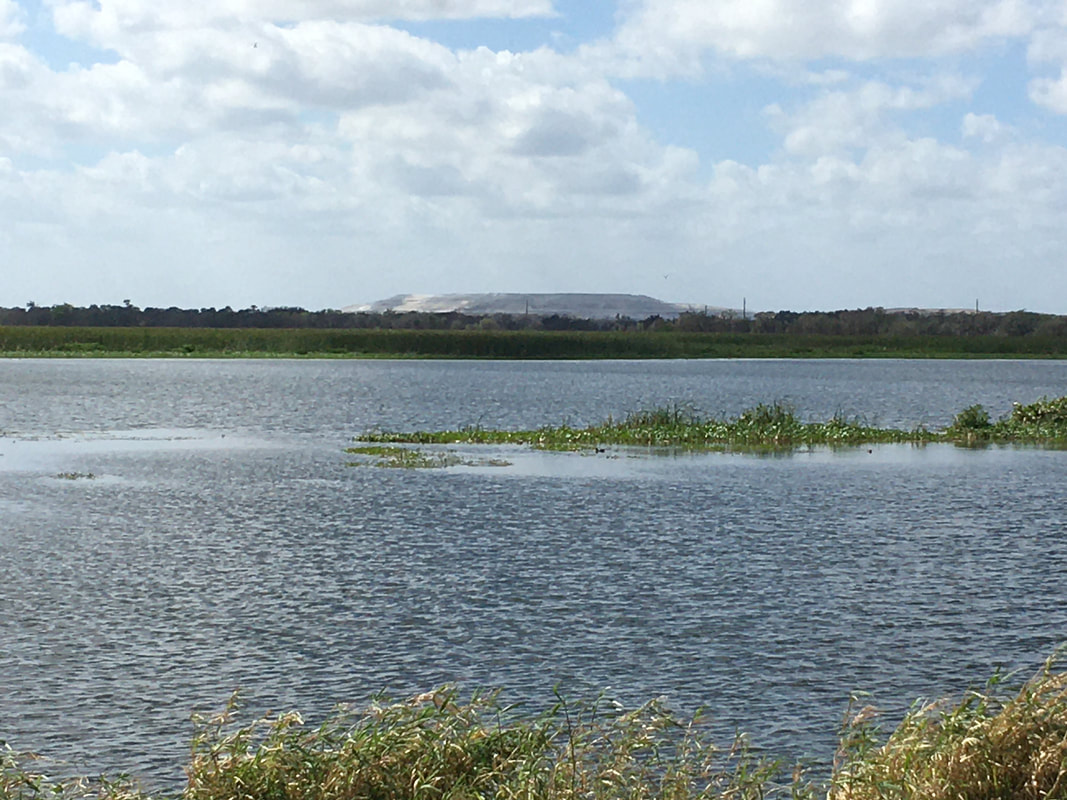
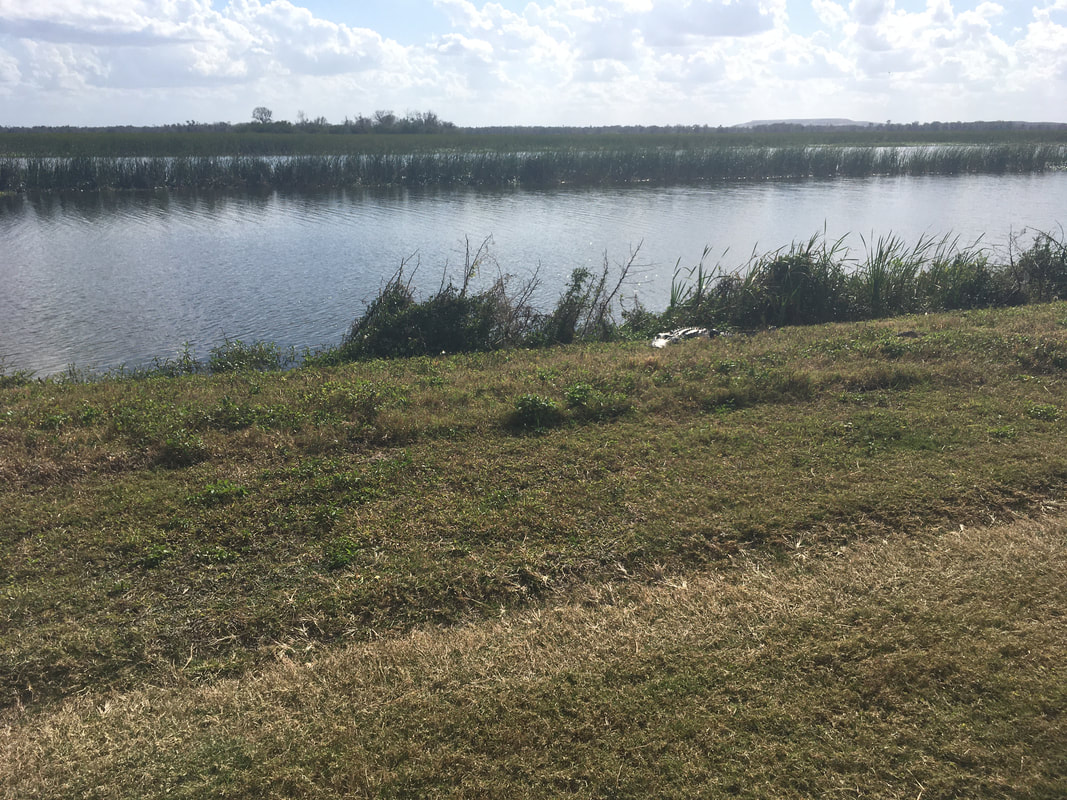
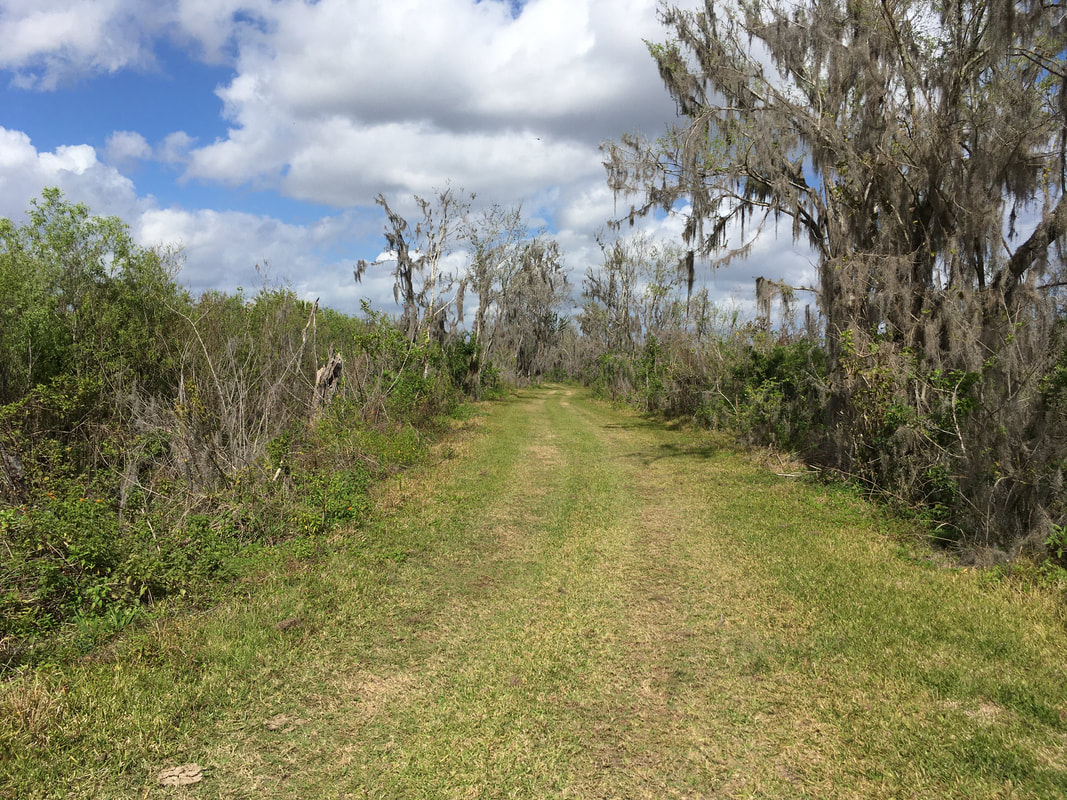
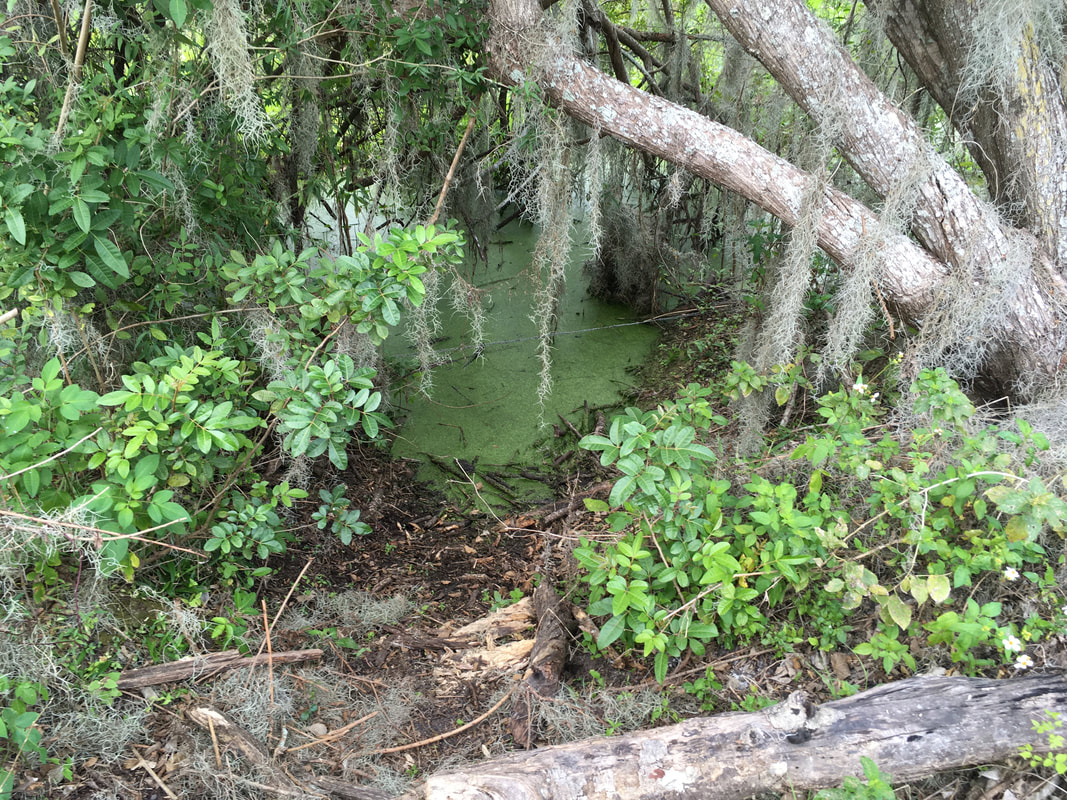
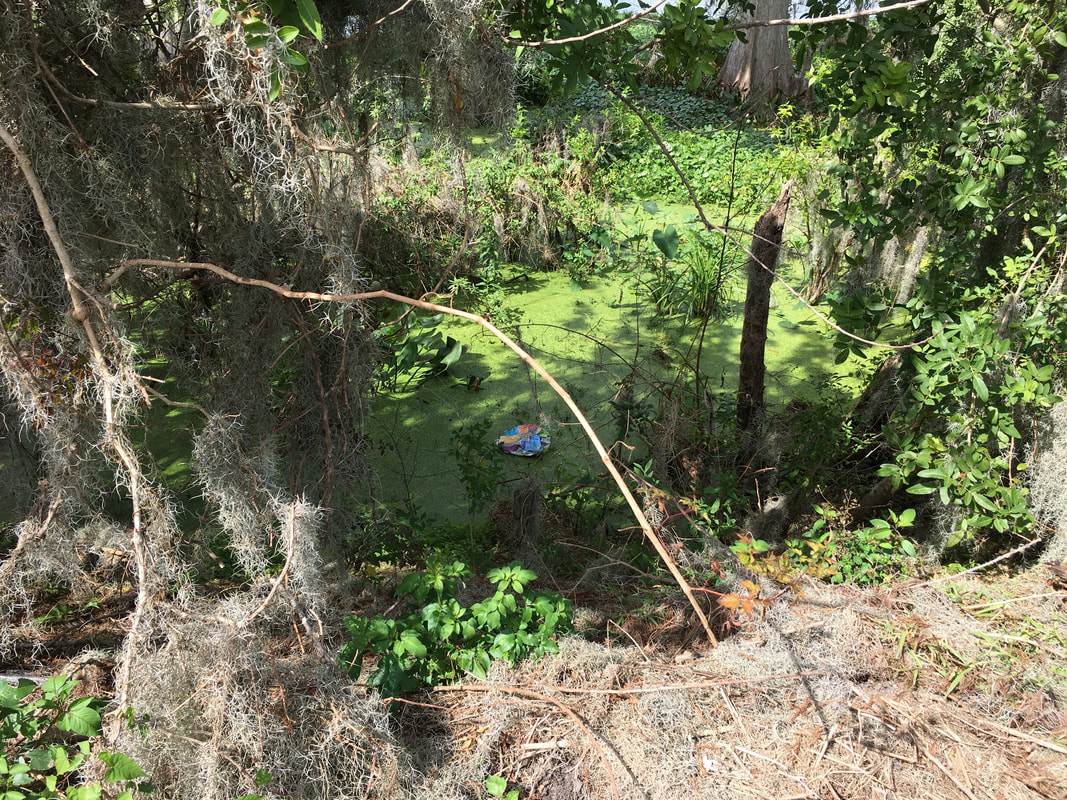
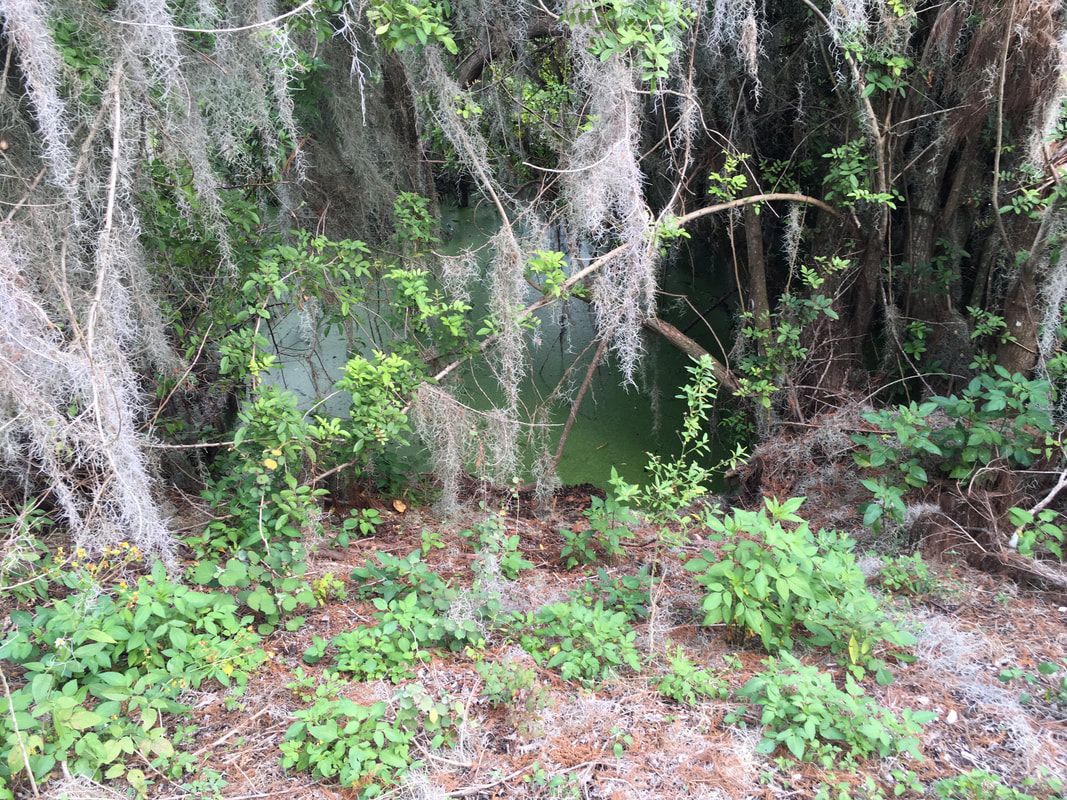
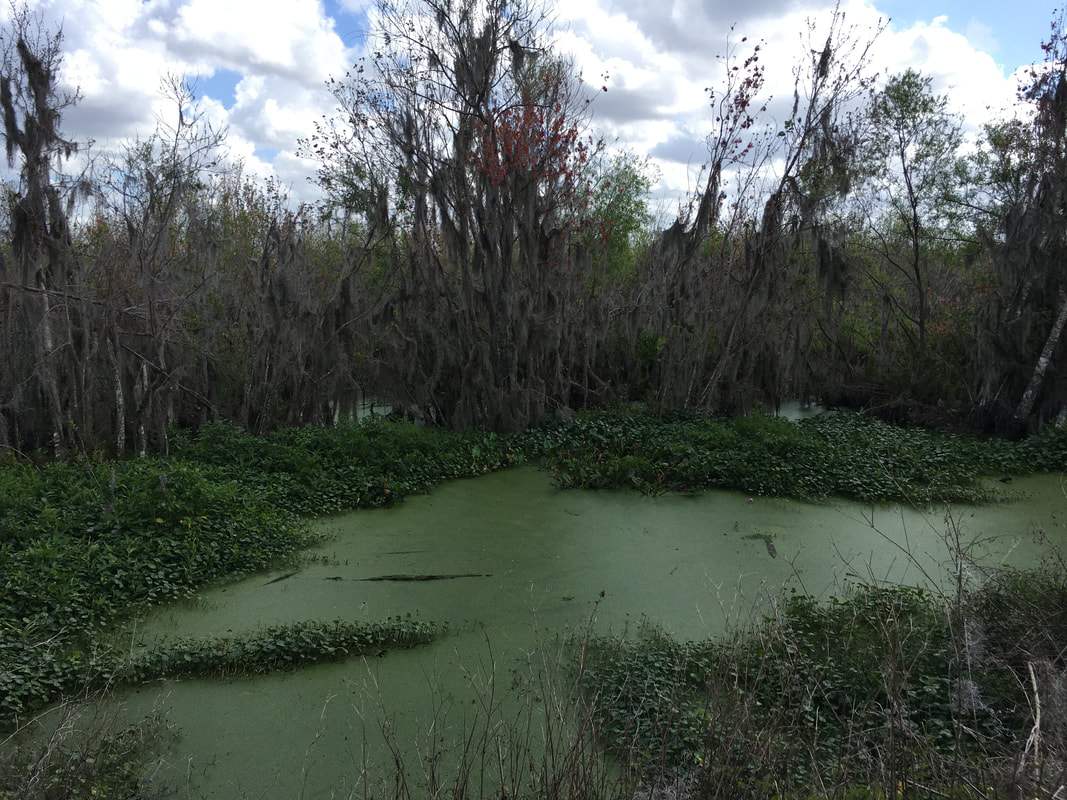
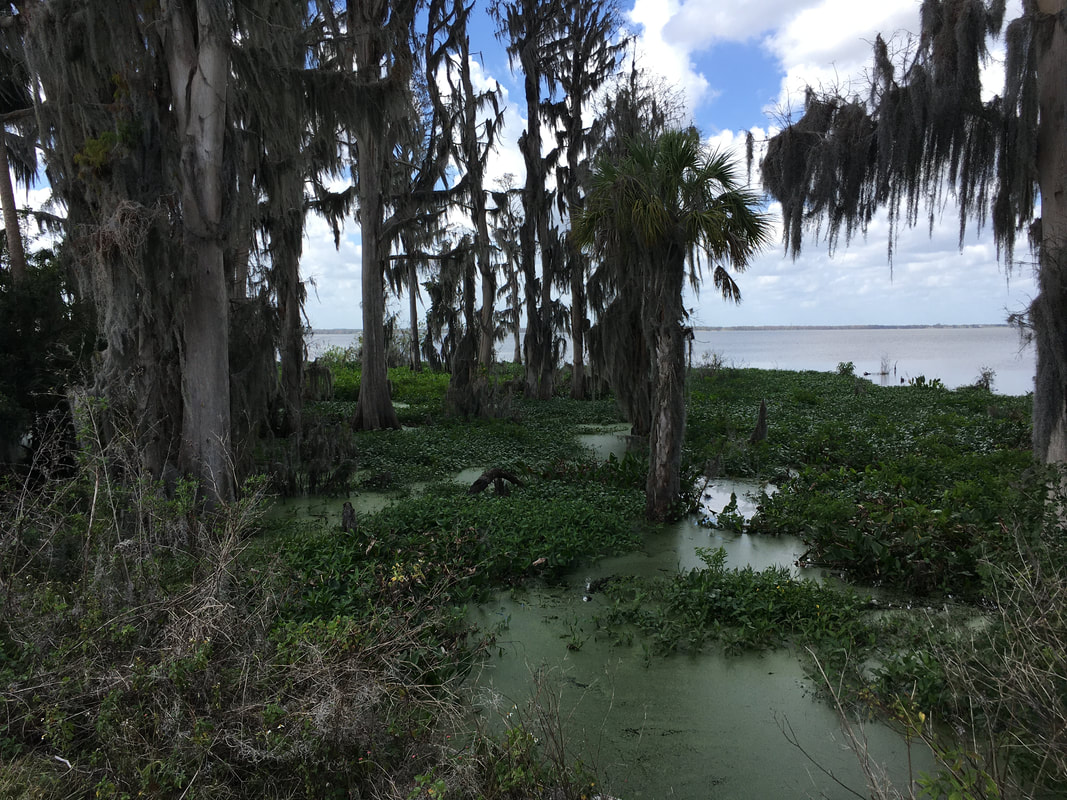
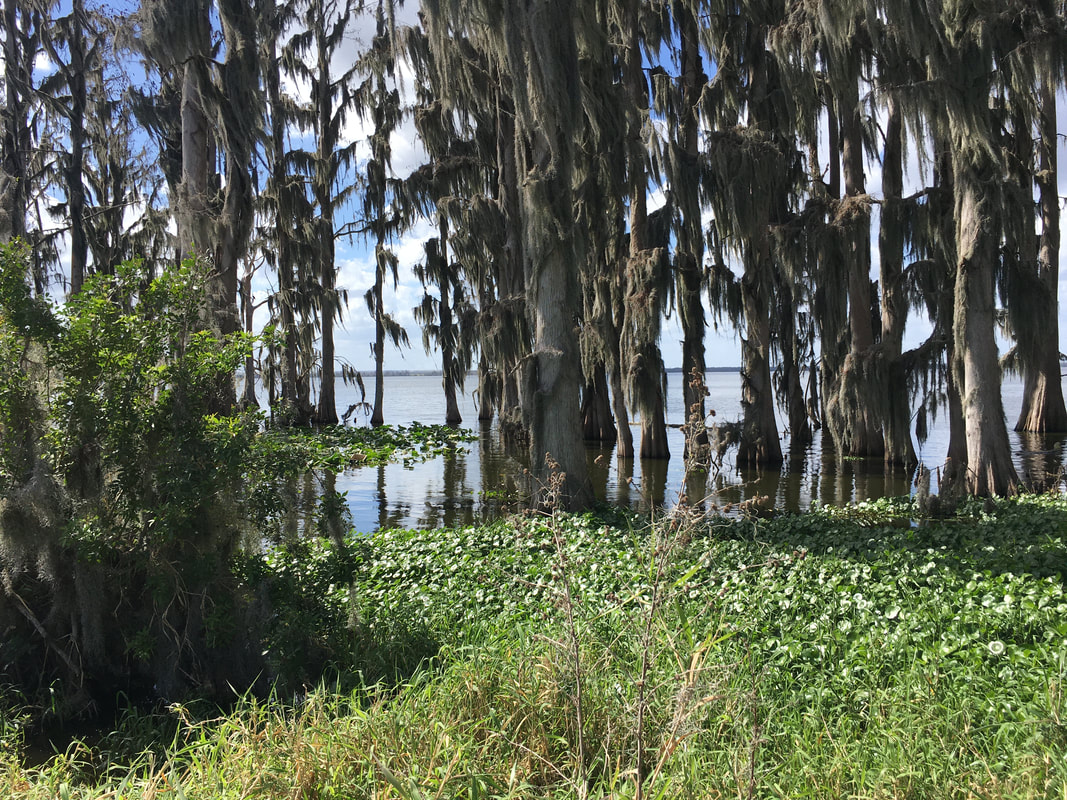
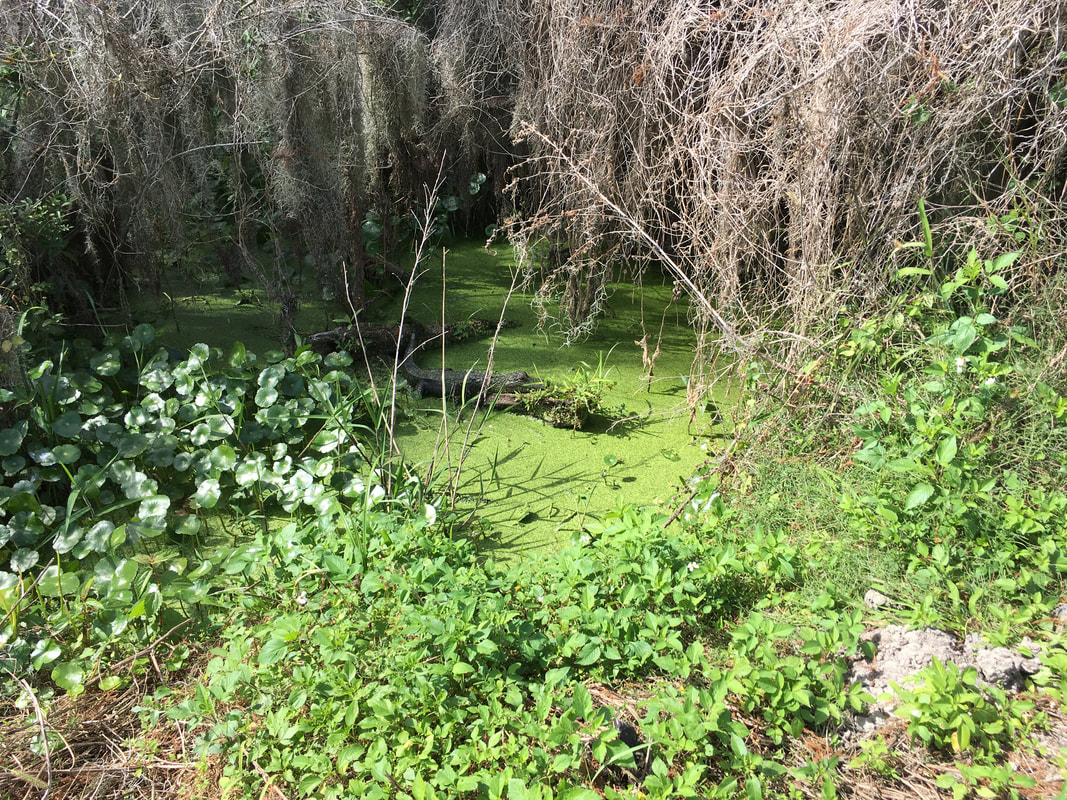

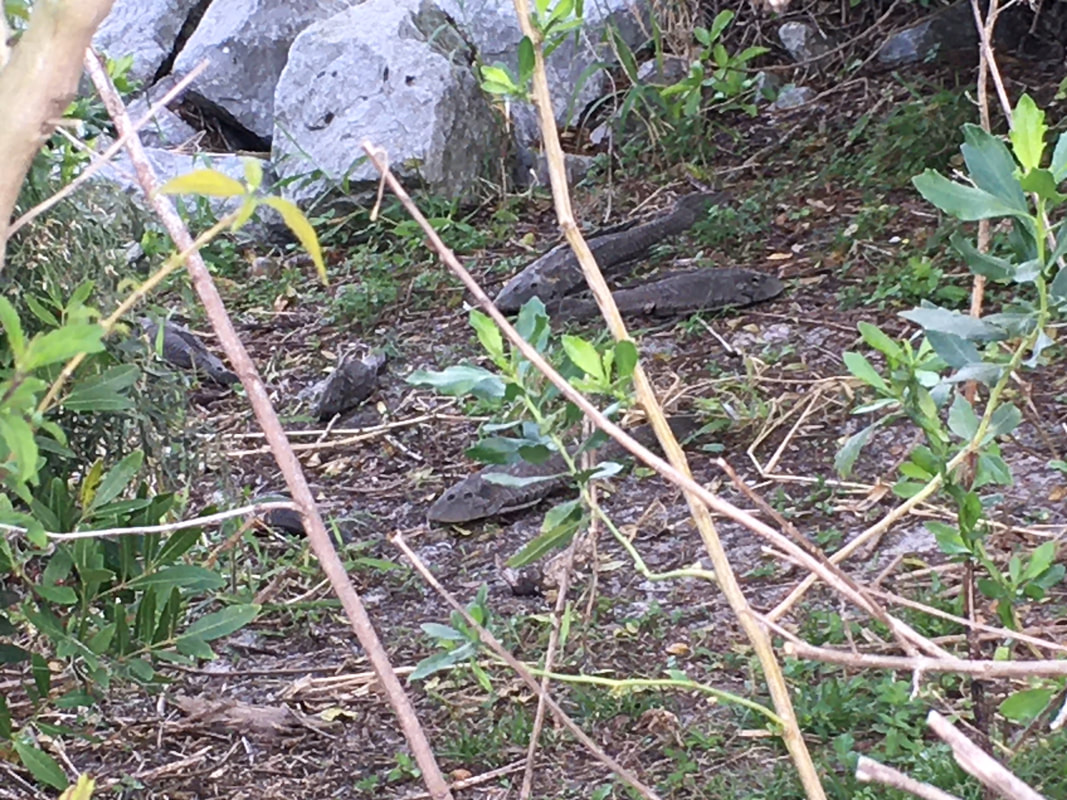

 RSS Feed
RSS Feed